Learning About
Sea Turtles
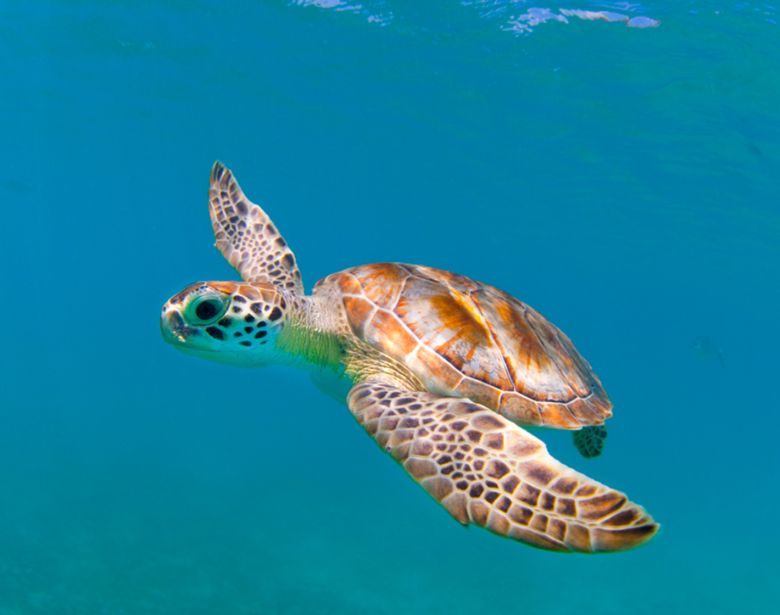

Sea turtles are large, air-breathing reptiles that inhabit tropical and subtropical seas throughout the world. Their shells consist of an upper part (carapace) and a lower section (plastron). Hard scales (or scutes) cover all but the leatherback, and the number and arrangement of these scutes can be used to determine the species.
Sea turtles do not have teeth, but their jaws have modified “beaks” suited to their particular diet. They do not have visible ears but have eardrums covered by skin. They hear best at low frequencies, and their sense of smell is excellent. Their vision underwater is good, but they are nearsighted out of water. Their streamlined bodies and large flippers make them remarkably adapted to life at sea. However, sea turtles maintain close ties to land. Females must come ashore to lay their eggs in the sand; therefore, all sea turtles begin their lives as tiny hatchlings on land.
Sea Turtles and Humans
Sea turtles have long fascinated people and have figured prominently in the mythology and folklore of many cultures. In the Miskito Cays off the eastern coast of Nicaragua, the story of a kind “Turtle Mother,” still lingers. Unfortunately, the spiritual significance of sea turtles has not saved them from being exploited for both food and for profit. Millions of sea turtles once roamed the earth’s oceans, but now only a fraction remain.
Reproduction
Only females come ashore to nest; males rarely return to land after crawling into the sea as hatchlings. Most females return to nest on the beach where they were born (natal beach). Nesting seasons occur at different times around the world. In the U.S., nesting occurs from March through October. Most females nest at least twice during each mating season; some may nest up to ten times in a season. Females typically don’t nest in consecutive years, often skipping one or two years before returning.
Growth & Development
Researchers do not yet know how long baby turtles spend in the open sea, or exactly where they go. It is theorized that they spend their earliest, most vulnerable years floating around the sea in giant beds of sargasso weeds, where they do little more than eat and grow. Once turtles reach dinner-plate size, they appear at feeding grounds in nearshore waters. They grow slowly and take between 15 and 30 years to reach reproductive maturity, depending on the species. There is no way to determine the age of a sea turtle from its physical appearance. It is theorized that some species can live over 100 years.
Migration and Navigation Abilities
The ability of a sea turtle to migrate hundreds (and occasionally thousands) of miles from its feeding ground to its nesting beach is one of the most remarkable acts in the animal kingdom. That adult females return faithfully to nest on the very beach where they were born makes the feat even more amazing. Research into where and how sea turtles migrate has been a focus of scientists for decades. The information collected is vital to the development of conservation strategies for the species. We now know that sea turtles undergo migration throughout their lives, beginning with the first frenzied swim as a hatchling.
Status of the Species
In North America, leatherback, hawksbill and Kemp’s Ridley sea turtles are classified as Endangered under the Endangered Species Act, while the loggerhead, olive ridley, and green sea turtles are listed as Threatened. Internationally, hawksbill and Kemp’s ridley sea turtles are listed as Critically Endangered (facing an extremely high risk of extinction in the wild in the immediate future) by the International Union for Conservation of Nature and Natural Resources (IUCN), while greens are listed as Endangered (facing a very high risk of extinction in the wild in the near future), and leatherbacks, loggerheads, and olive ridleys are listed as Vulnerable (facing a high risk of extinction in the wild in the immediate future).
About Sea Turtles
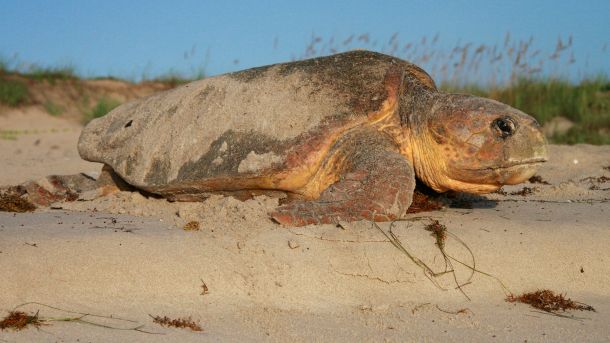
Loggerhead
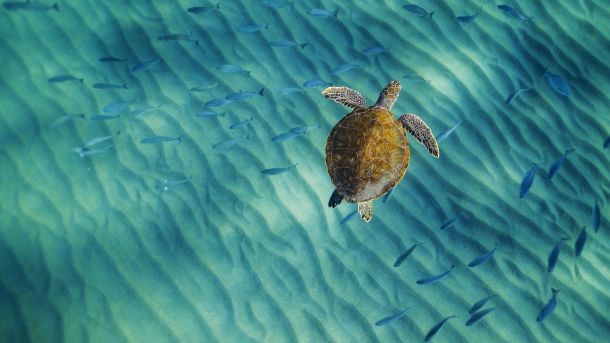
Green
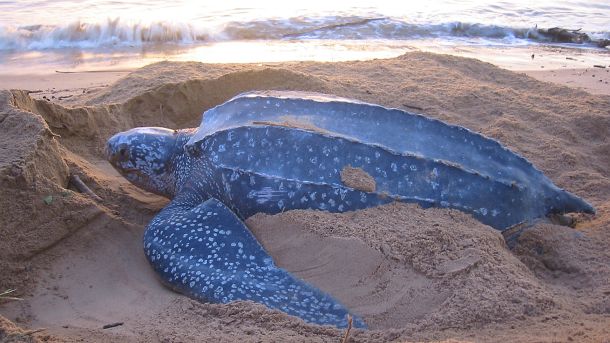
Leatherback
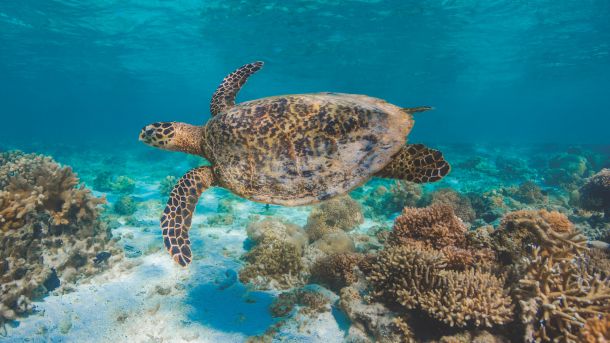
Hawksbill
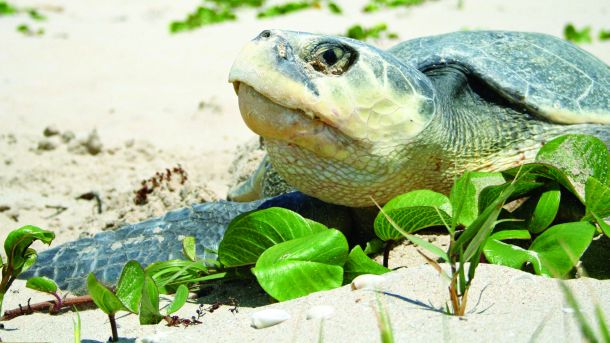
Kemp’s Ridley
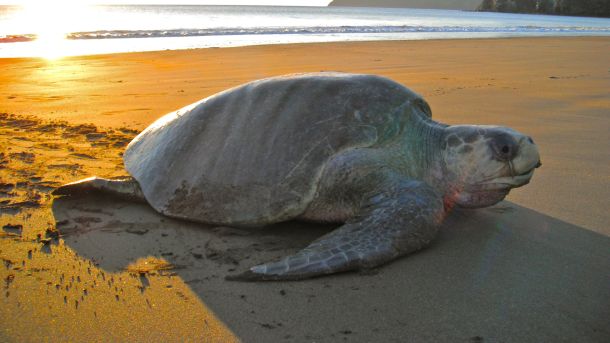
Olive Ridley
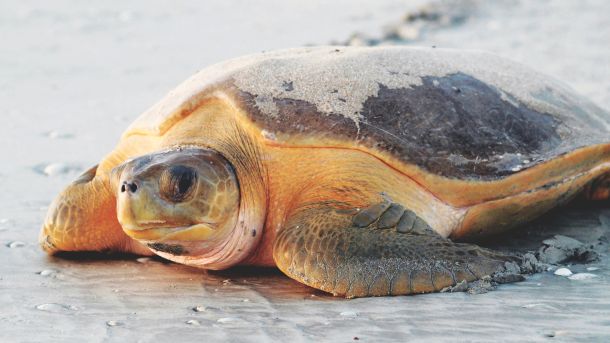
Flatback
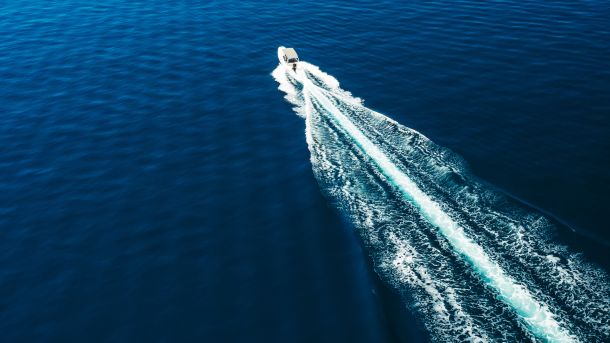
Boat Strikes
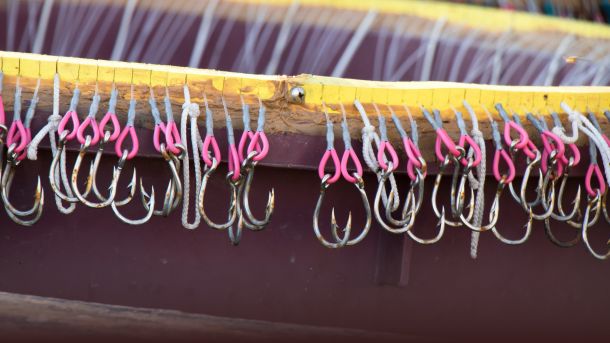
Longline Fisheries

Artificial Lighting
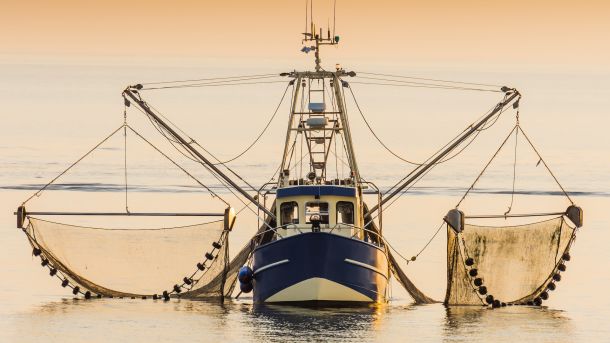
Trawl Fisheries
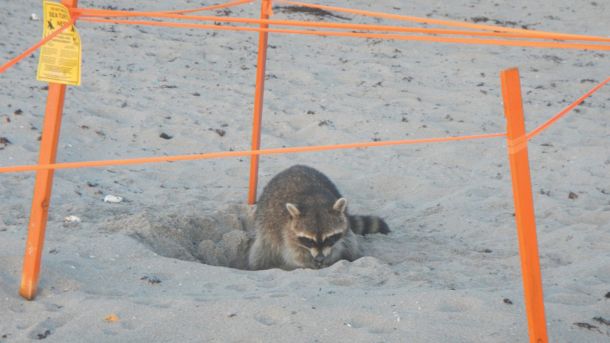
Nest Predation
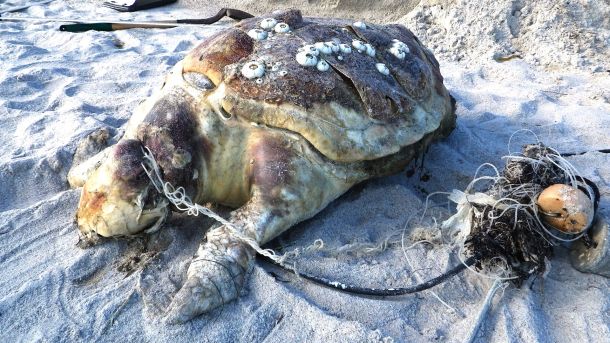
Marine Debris
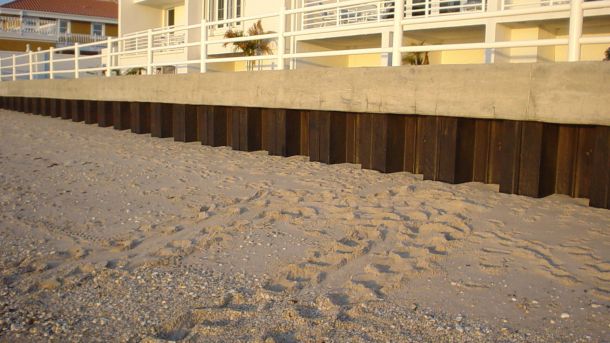
Coastal Armoring
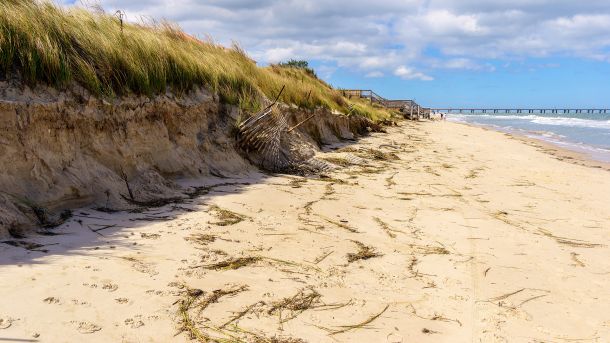
Beach Erosion

Climate Change
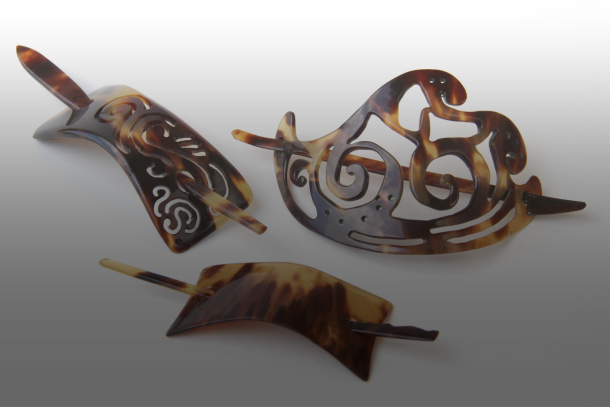
Illegal Shell Trade

Beach and Dunes
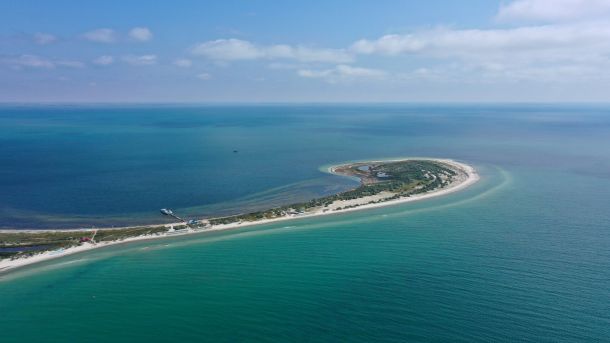
Barrier Islands
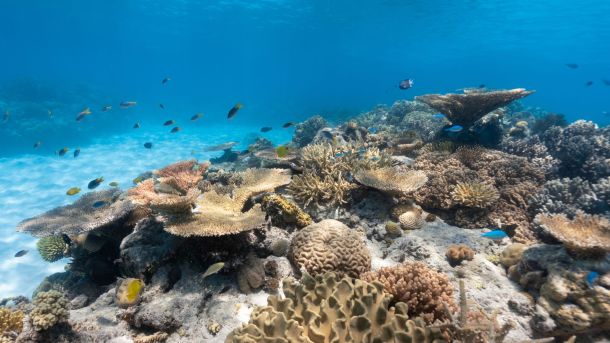
Coral Reefs
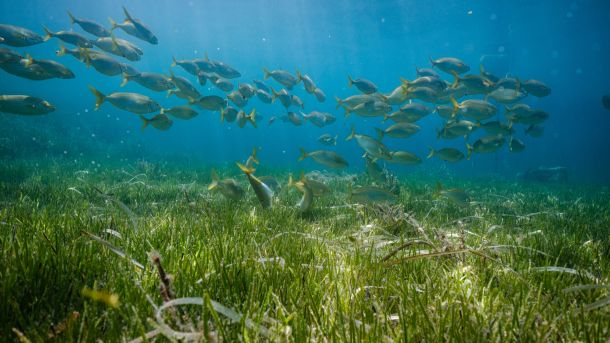
Seagrass Beds
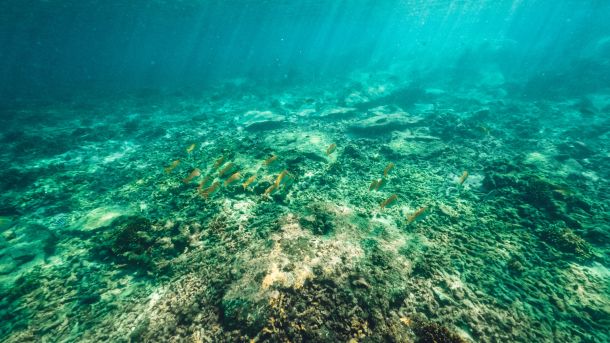
Nearshore Hardbottom
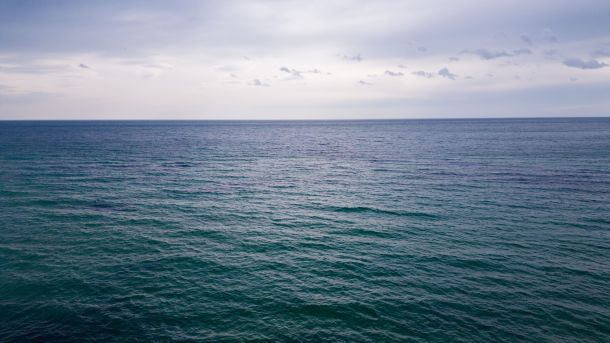
Pelagic
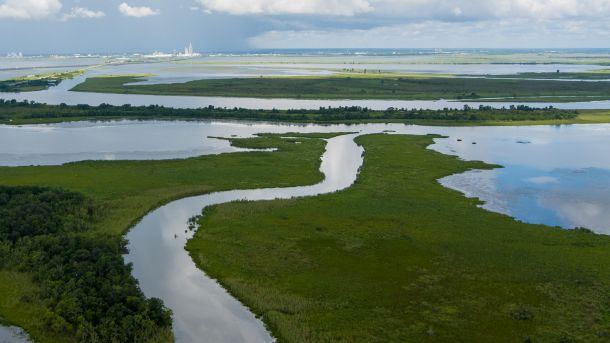
Lagoons and Estuaries
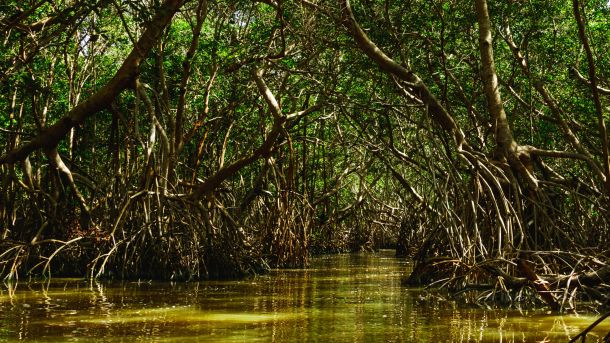
Mangroves
Still Have Questions?
We have more answers.
Learn more about sea turtles, their lifecycle and how humans are impacting their survival.
• They can detect both the angle and intensity of the earth’s magnetic field. Using these two characteristics, a sea turtle may be able to determine its latitude and longitude, enabling it to navigate virtually anywhere. Early experiments indicate that sea turtles have the ability to detect magnetic fields that can be used to identify locations and used as a compass.
• It is widely believed that hatchlings imprint the unique qualities of their natal beach while still in the nest and/or during their first trip from the nest to the sea. Beach characteristics used may include smell, low-frequency sound, magnetic fields, the characteristics of seasonal offshore currents and celestial cues.
Once she has created a body pit, she begins to dig an egg chamber using her rear flippers, alternating between the right and left flipper to scoop out the damp sand. When she can reach no deeper, she pauses and begins contractions, her rear flippers rising off the sand. Soon she begins laying eggs. Following each contraction, the female turtle will drop between one and four eggs in quick succession. The eggs will almost fill the chamber.
Once her clutch is complete, she closes the nest using her rear flippers in a similar way to digging her egg chamber, just in reverse. She places sand on top of the chamber, until the eggs are completely covered. She gently pats the damp sand on top of her eggs, using the underside of her shell (plastron). The camouflaging process now begins. Slowly moving forward, she throws dry, surface sand behind her. This is an effort to conceal the location of her eggs from predators. She may move forward while she is doing this. When she is done, she heads down the beach and returns to sea.
Satellite transmitters are most often attached to females that come ashore to nest. Tracking has provided important information on migration routes between breeding and foraging (feeding) habitats. The time length of tracking depends upon how long the device remains on the turtle and on battery life. Tracking usually continues for 6-10 months, although cases have been reported exceeding 2 years. After about two years, the transmitters fall safely off the turtles.
1. Sea turtles, especially green sea turtles, are one of the very few animals to eat sea grass. Like normal lawn grass, sea grass needs to be constantly cut short to be healthy and help it grow across the sea floor. Sea turtles and manatees act as grazing animals that cut the grass short and help maintain the health of the sea grass beds. Sea grass beds are important because they provide breeding and developmental grounds for many species of fish, shellfish and crustaceans. Over the past decades, there has been a decline in sea grass beds. This decline may be linked to fewer numbers of sea turtles grazing. Without sea grass habitats, many of marine species would be lost. All parts of an ecosystem are important. If you lose one, the rest will eventually follow.
2. Beaches and dune systems do not retain nutrients well because of the sand, so very little vegetation grows on the dunes and no vegetation grows on the beach itself. Sea turtles use beaches and the lower dunes to nest and lay their eggs. Sea turtles deposit an average of about 100 eggs in each nest and lay between 3 and 7 nests during the nesting season. Along a 20-mile stretch of beach on the east coast of Florida, sea turtles lay over 150,000 lbs of eggs in the sand. Not every nest will hatch, not every egg in a nest will hatch, and not all of the hatchlings in a nest will make it out of the nest. The unhatched nests, eggs and trapped hatchlings are good sources of nutrients for the dune vegetation, even the left over egg shells from hatched eggs provide some nutrients. As a result, dune vegetation is able to grow and become stronger with the presence of nutrients from turtle eggs. As the dune vegetation grows stronger and healthier, the health of the entire coastal ecosystem becomes better. Stronger vegetation and root systems helps to hold the sand in the dunes and helps protect the beach from erosion. If sea turtles become extinct, dune vegetation would lose a major source of nutrients and would de-stabilize the ecosystem, resulting in increased coastal erosion and reduced habitat for wildlife. Once again, all parts of an ecosystem are important, if you lose one, the rest will eventually follow.
Sea turtles are part of two ecosystems, the coastal system and the marine system. If sea turtles became extinct, both the marine and coastal ecosystems would be negatively affected. And because humans utilize the marine ecosystem as a natural resource for food and use the coastal system for a variety of activities, a negative impact to these ecosystems would negatively affect humans.
PHYLUM – Chordata
CLASS – Reptilia
Class Reptilia includes snakes, lizards, crocodiles, and turtles. Reptiles are ectothermic (cold-blooded) and are vertebrates (have a spine). All reptiles have scaly skin, breathe air with lungs, and have a three-chambered heart. Most reptiles lay eggs.
ORDER – Testudines
Order Testudines includes all turtles and tortoises. It is divided into three suborders. Pleurodira includes side-necked turtles, Cryptodira includes all other living species of turtles and tortoises, and Amphichelydia includes all extinct species.
SUBORDER – Cryptodira
Suborder Cryptodira includes freshwater turtles, snapping turtles, tortoises, soft-shelled turtles, and sea turtles.
FAMILY – Cheloniidae or Dermochelyidae
Sea turtles fall into one of two families. Family Cheloniidae includes sea turtles which have shells covered with scutes (horny plates). Family Dermochelyidae includes only one modern species of sea turtle, the leatherback turtle. Rather than a shell covered with scutes, leatherbacks have leathery skin.
GENUS and SPECIES
Most scientists currently recognize seven living species of sea turtles grouped into six genera.